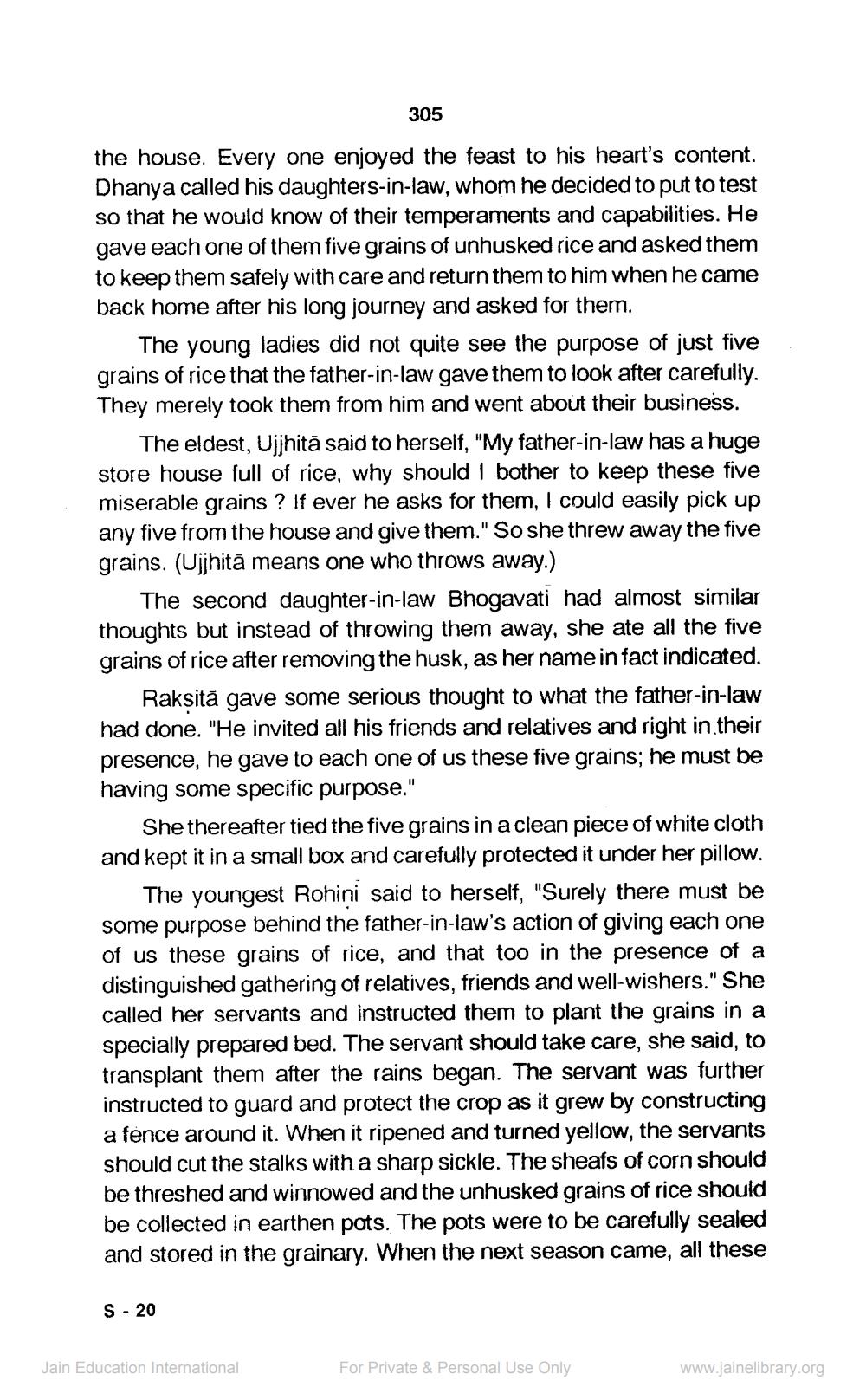________________
the house. Every one enjoyed the feast to his heart's content. Dhanya called his daughters-in-law, whom he decided to put to test so that he would know of their temperaments and capabilities. He gave each one of them five grains of unhusked rice and asked them to keep them safely with care and return them to him when he came back home after his long journey and asked for them.
305
The young ladies did not quite see the purpose of just five grains of rice that the father-in-law gave them to look after carefully. They merely took them from him and went about their business.
The eldest, Ujjhita said to herself, "My father-in-law has a huge store house full of rice, why should I bother to keep these five miserable grains? If ever he asks for them, I could easily pick up any five from the house and give them." So she threw away the five grains. (Ujjhita means one who throws away.)
The second daughter-in-law Bhogavati had almost similar thoughts but instead of throwing them away, she ate all the five grains of rice after removing the husk, as her name in fact indicated.
Rakṣitā gave some serious thought to what the father-in-law had done. "He invited all his friends and relatives and right in their presence, he gave to each one of us these five grains; he must be having some specific purpose."
She thereafter tied the five grains in a clean piece of white cloth and kept it in a small box and carefully protected it under her pillow.
The youngest Rohini said to herself, "Surely there must be some purpose behind the father-in-law's action of giving each one of us these grains of rice, and that too in the presence of a distinguished gathering of relatives, friends and well-wishers." She called her servants and instructed them to plant the grains in a specially prepared bed. The servant should take care, she said, to transplant them after the rains began. The servant was further instructed to guard and protect the crop as it grew by constructing a fence around it. When it ripened and turned yellow, the servants should cut the stalks with a sharp sickle. The sheafs of corn should be threshed and winnowed and the unhusked grains of rice should be collected in earthen pots. The pots were to be carefully sealed and stored in the grainary. When the next season came, all these
S-20
Jain Education International
For Private & Personal Use Only
www.jainelibrary.org




